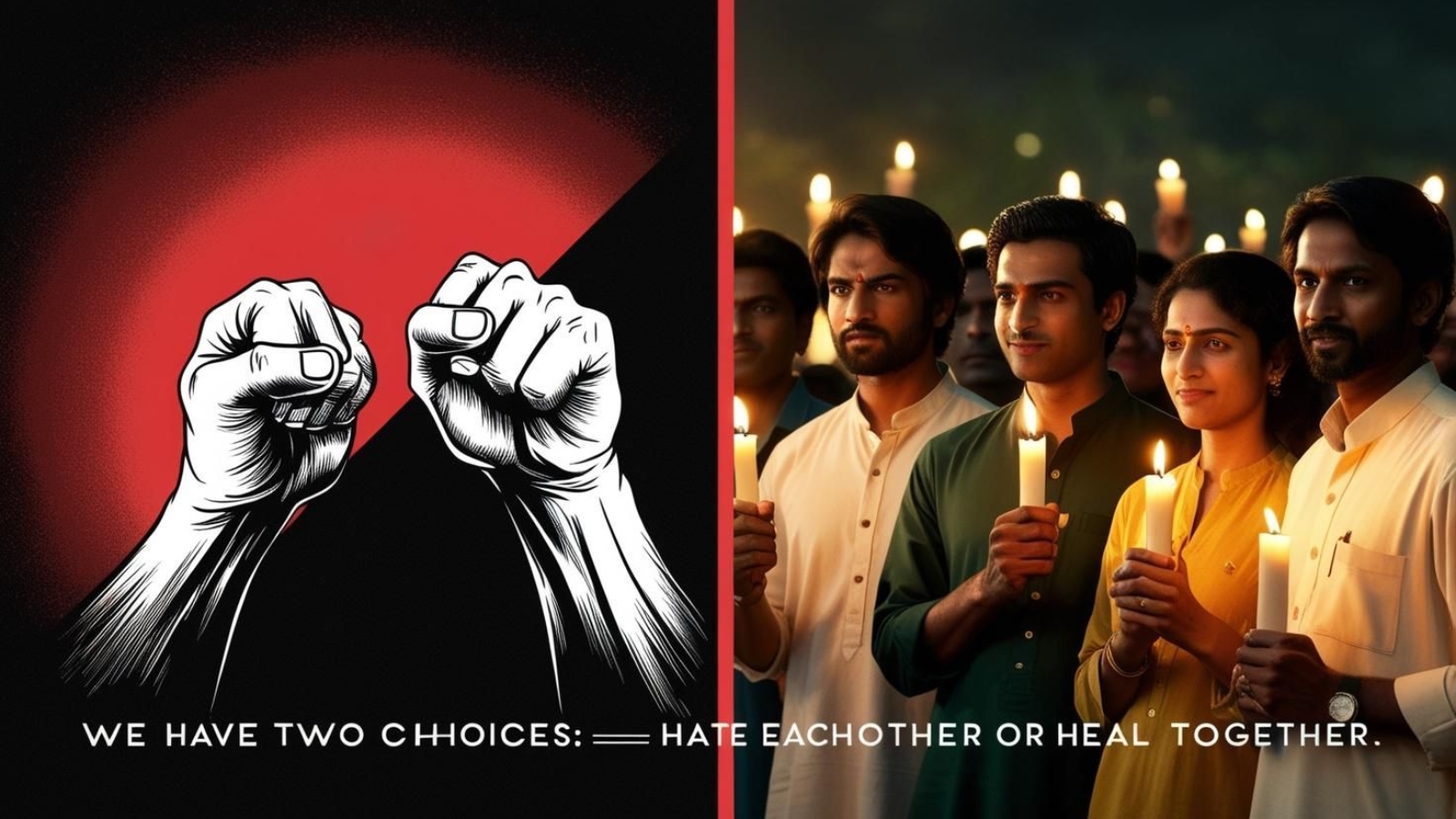On 22nd April, the beautiful valley of Pahalgam was stained with blood.
Innocent lives were lost. Families destroyed.
Dreams shattered in a blink.
And just like always, before the dust could even settle, fingers started pointing.
Accusations were thrown.
Blame was placed — this time, once again, at Pakistan.
As a Pakistani, it hurts.
Not just the blame — but the fact that we are all trapped in this endless cycle of hatred, pain, and mistrust.
Let’s be real for a second:
Terrorism has no nationality.
No religion.
No flag.
It is a disease of the mind.
It doesn’t matter if it happens in Pahalgam, in Lahore, in Mumbai, in Karachi, or in Balochistan.
The pain is the same.
The tears are the same.
Just days ago, in my own country, Balochistan witnessed a horrifying train hijack.
Innocent people — passengers who were just trying to get home to their families — were brutally killed by sick-minded terrorists.
Should I blame an entire nation for that?
Should I declare that everyone across the border is my enemy?
No.
Because deep down, we all know:
It’s not people who are evil.
It’s the mindset that is evil.
The enemy is not each other.
The real enemy is hatred.
The real enemy is those twisted minds who want to keep us bleeding, broken, and fighting — so that peace never wins.
Why are we fighting each other?
Why are we making it easier for terrorists to succeed?
Every time we accuse blindly, hate blindly, we give these monsters exactly what they want:
Division. Anger. War.
We need to wake up.
We need to realize that our real battle is not against a country.
Our real battle is against the sick mentality that celebrates death instead of life.
From Pakistan, from my heart, I say this clearly:
We stand with the innocent victims of Pahalgam.
Just like we cry for our own people lost in Balochistan.
Pain is universal.
It doesn’t ask for a passport.
Let’s not let the terrorists win.
Let’s not let hate win.
Let’s fight together — not against each other — but against the real disease: the mindset that wants endless war, endless bloodshed.
Because at the end of the day,
a mother’s tears look the same whether she’s in Srinagar or Quetta.
And that’s all that should matter.

 Cart is empty
Cart is empty 
Leave A Comment